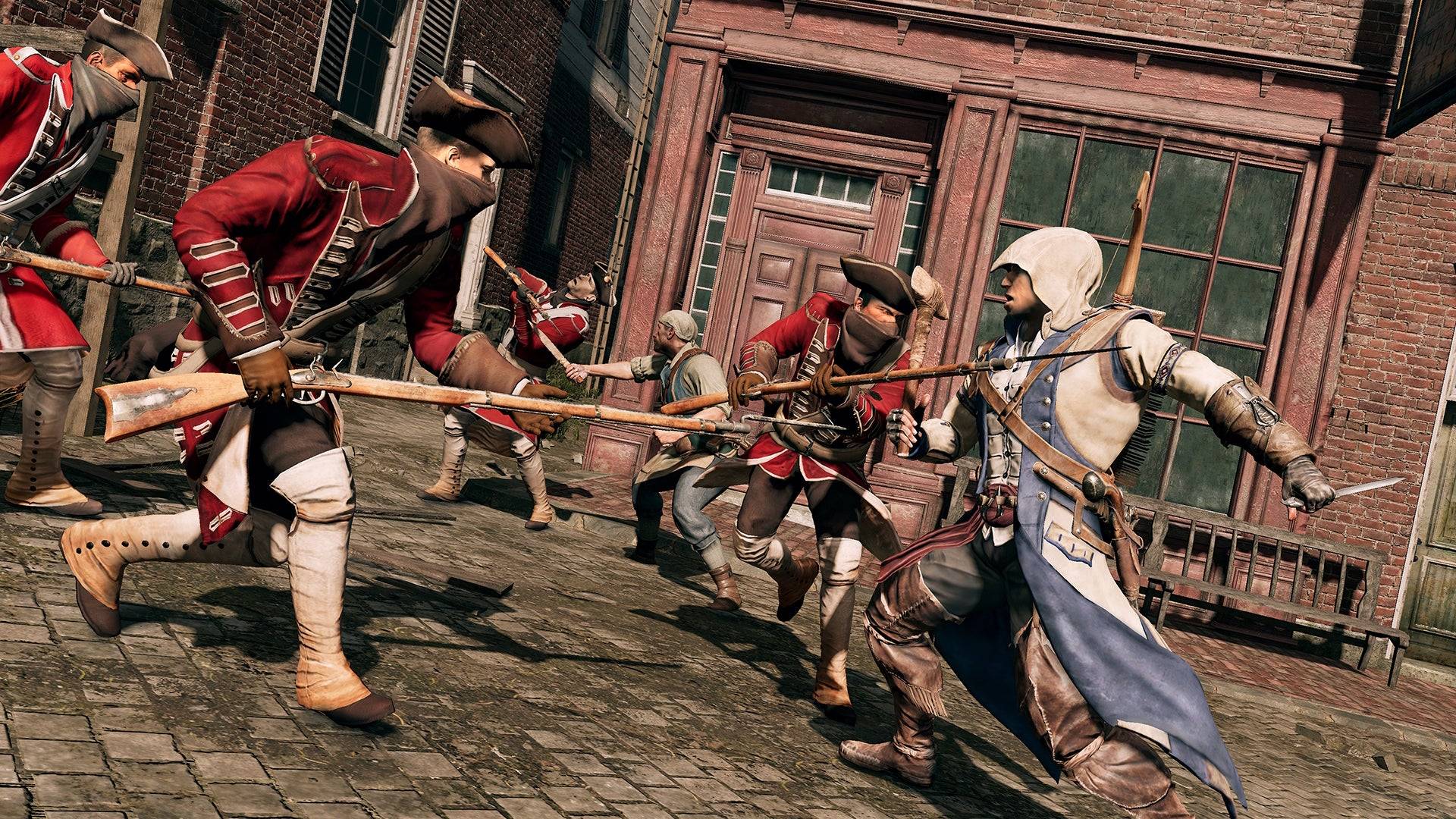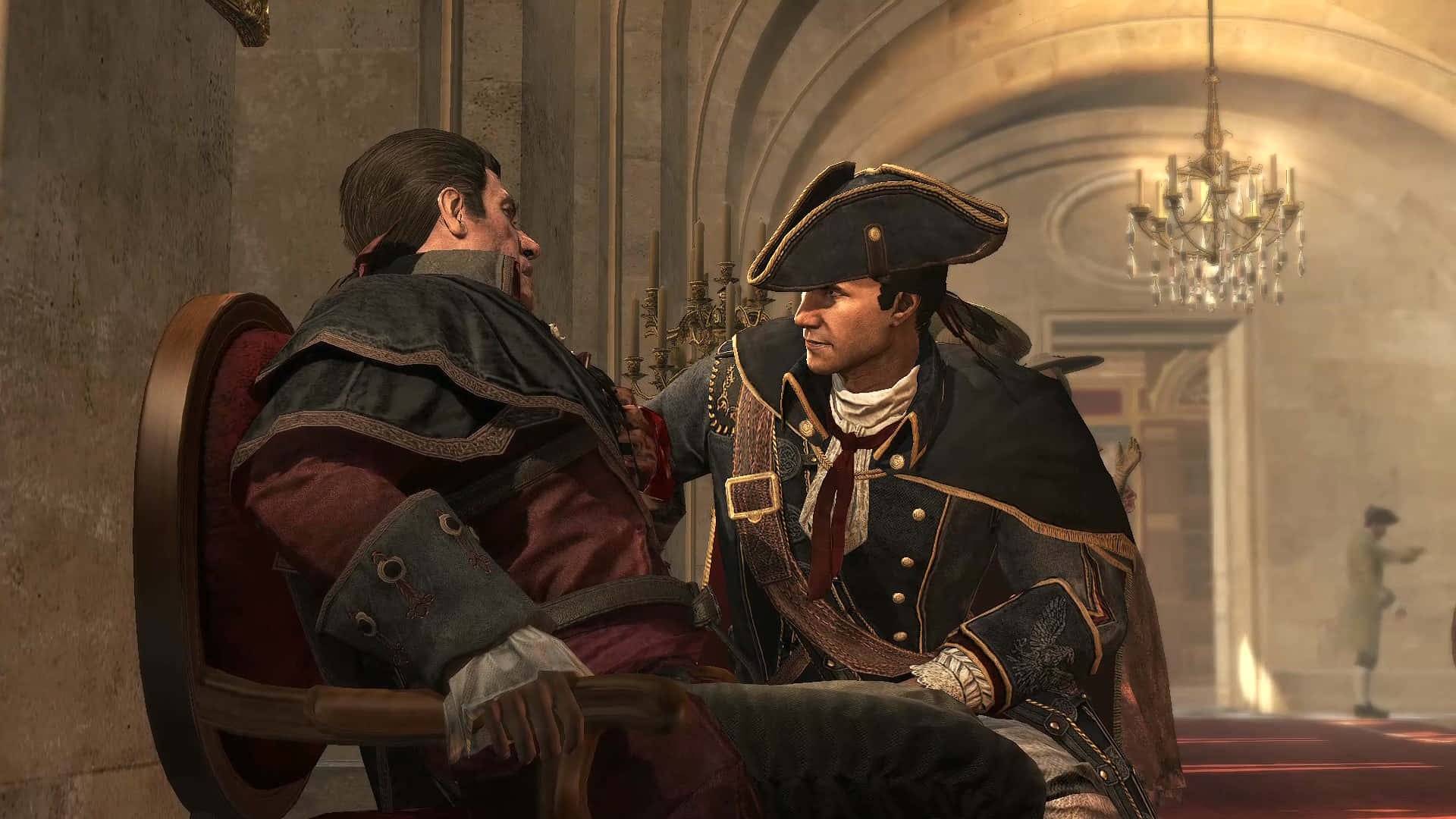One of the most memorable moments in the entire *Assassin's Creed* series occurs early in *Assassin's Creed III*. Haytham Kenway, having assembled his team in the New World (or so it seems), initially appears heroic. He wields a hidden blade, possesses the charisma of Ezio Auditore, and even rescues Native Americans from prison, battling British soldiers. Only his utterance of the Templar phrase, "May the Father of Understanding guide us," reveals his true allegiance. This twist perfectly embodies *Assassin's Creed*'s potential.
The first game introduced a compelling concept—locate, understand, and eliminate targets—but fell short narratively. Altaïr and his victims lacked personality. *Assassin's Creed II* improved things with the iconic Ezio, but its adversaries remained underdeveloped, exemplified by the underwhelming Cesare Borgia in *Brotherhood*. Only in *Assassin's Creed III*, set during the American Revolution, did Ubisoft dedicate equal effort to developing both hunter and hunted, creating a seamless narrative arc and achieving a rare balance of gameplay and storytelling.

While the current RPG era is generally well-received, many believe *Assassin's Creed* is in decline. The reasons are debated: unrealistic premises (facing gods like Anubis and Fenrir), romance options, or even the controversial use of a real-world historical figure like Yasuke in *Assassin's Creed: Shadow*. However, I argue the decline stems from the series abandoning character-driven storytelling, lost within sprawling sandboxes.
Over time, *Assassin's Creed* has incorporated RPG and live-service elements: dialogue trees, XP systems, loot boxes, microtransactions, and gear customization. But larger installments feel emptier, not just due to numerous side quests, but also in their storytelling.
Games like *Assassin's Creed Odyssey*, while boasting more content than *Assassin's Creed II*, often feel superficial. While player choice enhances immersion theoretically, in practice, lengthy scripts to accommodate multiple scenarios lack the polish of games with more limited interaction. The focused scripts of the action-adventure era created sharply defined characters, unaffected by a structure demanding arbitrary compassion or brutality from the player.
This breaks immersion, highlighting the artificiality of interactions. This contrasts sharply with the Xbox 360/PS3 era, which featured exceptional writing. From Ezio's defiant "Do not follow me, or anyone else!" to Haytham's tragicomic death scene:
“Don't think I have any intention of caressing your cheek and saying I was wrong. I will not weep and wonder what might have been. I'm sure you understand. Still, I'm proud of you in a way. You have shown great conviction. Strength. Courage. All noble qualities. I should have killed you long ago.”

The writing has also suffered from a simplification of the Assassins/Templars dichotomy. Earlier games explored the moral ambiguity, with defeated Templars prompting self-reflection. In *Assassin's Creed III*, each Templar's death challenges Connor's beliefs. William Johnson suggests the Templars could have prevented genocide; Thomas Hickey criticizes the Assassins' mission; Benjamin Church emphasizes perspective; and the British view themselves as victims. Haytham challenges Connor's faith in Washington, revealing Washington's role in burning Connor's village. The game ends with more questions than answers—a testament to its narrative strength.
AnswerSee ResultsThe popularity of "Ezio's Family" from *Assassin's Creed II*'s soundtrack highlights the impact of character-driven narratives. The PS3-era games, particularly *Assassin's Creed II* and *III*, focused on character, with "Ezio's Family" reflecting Ezio's personal loss. While I appreciate the current games' world-building and graphics, I hope the franchise will return to focused storytelling, delivering the quality that captivated players initially. Sadly, in the current gaming landscape, this might not be commercially viable.








